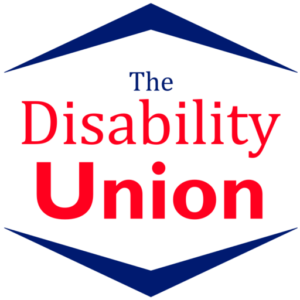Comment by Alan Hewitt
Have you heard of aphasia? A communication difficulty? No? Don’t worry! In a 2020 aphasia awareness survey 93% of people haven’t heard of aphasia or even identify it as a language disorder *.
The identification ‘split’ is not down to numbers. Look at the UK figures:
· 132,000 estimated people with Multiple Sclerosis (MS)
· 260,000 estimated Myalgic Encephalomyelitis (ME)
· 350,000 estimated people with aphasia (or higher)
Why is it so hard to explain when you have these figures? It all starts with the brain (what else!). The causes of the damage to the brain communication centres (which are starved of oxygen) stem from such things as stroke, brain hemorrhage, or any kind of brain injury … resulting in aphasia. The symptoms vary with different difficulties, rather than a single problem – speaking, reading, writing, understanding, innumeracy, memory, right-sided paralysis or hemiplegia, and cognitive deficits. In any order, in any ranking. It does not affect intelligence. It lasts for life, although there are improvements: some of them are marked, some not. In fact, some people with aphasia do not consider it a disability. There are various professional ‘types’ of aphasia. There is a particularly pernicious form – progressive aphasia. It gets worse and worse. Speaking, the most obvious symptom is only the tip of the iceberg.
Is the variety of disabilities what causes the split? Or can it be the lack of talking?
I had a brain haemorrhage and aphasia in 1992 when I was 42. I couldn’t speak for two years. My world fell apart. From being Head of Development in a fuel poverty charity to a relegated ‘information’ worker… no matter that I couldn’t speak! I have problems with speech and right-sided hemiplegia … but I can type my thoughts. Two years into my aphasia Action for Dysphasic Adults (ADA) now Speakability, part of the Stroke Association, came along. Dysphasia is a language disorder while aphasia means no speech. Aphasia is the preferred term. ADA started self-help aphasia groups all around the country. For me it was heaven! Social interaction with other people with aphasia is number one. I started up the Gateshead group. I went on to be the secretary to aphasia self-help groups – Nottingham, Central London, Sheffield. I was a trustee for one and half years and then employed by Connect – the communication disability network – for 13 years until I retired. I was lucky. Only a small percentage of people with aphasia who, for various reasons, come to the groups. It can strike at any time, no matter what gender, age, or work you have.
Just think what you would do if you suddenly found yourself in the position of having no, or a few, words to employ? Depression is a common factor in post-aphasia. The NHS/Speech & Language Therapists can help. They are underfunded and some of them are exceptional. The aphasia charities help. Connect (now sadly defunct), Re-Connect https://aphasiareconnect.org, Speakability (the Stroke Association https://www.stroke.org.uk), Aphasia Alliance https://aphasiaalliance.org, Bury Speakeasy http://speakeasy-aphasia.org.uk, North East Trust for Aphasia (NETA) https://www.neta.org.uk, Afasic https://www.afasic.org.uk, etc.
There is only one charity, Say Aphasia https://www.sayaphasia.org, which has been started and led by Colin Lyall, a person with aphasia. Fantastic… but that’s the problem. Some charities are run by well-meaning people who do not appreciate or fail to see the fact that people with aphasia would be over the moon if they were employed to help. There should be more emphasis placed on Access to Work (the government scheme which places a person without disabilities alongside a person with a disability to help him/her) The place of work has to be re-orientated, it can be done, it just takes courage. leadership is the key. In two reports in 2021, commissioned by the Association of Chief Executives of Voluntary Organisations (ACEVO), the researchers found that disabled people in senior positions across the sector often felt the need to hide their ‘impairments’ if they wanted to be accepted as leaders. People with aphasia can’t do that. Disabled leaders were often frustrated at being “pigeonholed in disability-related roles and organisations” and at not having the same career options within the sector as non-disabled people. As Colin Lyall has shown people with aphasia can be leaders.
Charity funding is getting tighter and tighter. Maybe Covid has taken its toll. For instance, the disabled people’s and service-user network Shaping Our Lives (SOL) has seen 33 of its member organisations across the UK forced to close in the last two years. The government has been criticised for failing to support disabled people’s organisations through its National Disability Strategy, as new figures provide further evidence of the “extremely hostile” environment they are facing. The Department of Health and the Department of Work and Pensions will need a strong aphasia voice to cater to the needs of people with aphasia. The NHS is getting privatised by stealth.
Where do we go now? Joining with other disability organisations, jointly working together to improve our lives, that’s a force to be reckoned with. Maybe we have problems with speech and other problems which you can’t see. But don’t fail to recognise the fact that we are passionate about bettering and improving your lives, and ours, by default.
https://www.sayaphasia.org
https://aphasiareconnect.org
https://aphasiaalliance.org
http://speakeasy-aphasia.org.uk
https://www.stroke.org.uk
https://www.neta.org.uk
https://www.afasic.org.uk



